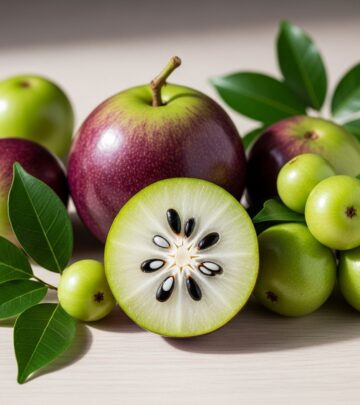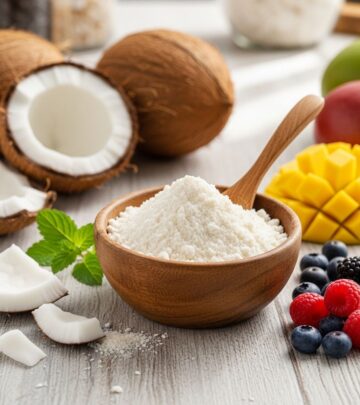Okra Water: Potential Benefits, Uses, and Drawbacks Explained
A simple veggie infusion that aids digestion and helps maintain balanced blood sugar.

Okra Water: What Is It and Why Is It Trending?
Okra water is becoming a popular health drink, praised for its potential health and wellness benefits by natural health advocates. Made by soaking raw okra pods in water, this beverage is promoted as an easy alternative for those who want the nutrients from okra without eating the vegetable itself, especially for people who dislike its unique texture. As interest in plant-based remedies rises, so do questions about the validity of these claims and the science supporting them.
What is Okra Water?
Okra water is a drink prepared by soaking whole okra pods in water for 8–24 hours. Some people slit or slice the pods to increase nutrient release, but most recipes are simple:
- Wash 4–6 fresh okra pods thoroughly.
- Cut off the ends or slice lengthwise, if desired.
- Place the pods in a glass of 1–2 cups of water.
- Let soak overnight (up to 24 hours) at room temperature or in the refrigerator.
- Remove the pods in the morning and drink the infused water on an empty stomach.
This gentle, mucilaginous drink is easy to prepare at home and is seen as a convenient way to access some of okra’s plant nutrients. However, the exact nutritional value of okra water is not well-established in scientific literature, and it is still unclear how much of okra’s nutrients actually infuse into the water.
The Nutritional Profile of Okra
While no comprehensive analysis exists for the precise nutrients in okra water, okra as a vegetable is packed with essential vitamins, minerals, and antioxidants. Based on 8 pods (approx. 80 grams) of raw okra, the breakdown includes:
- Calories: 31
- Protein: 2 grams
- Fat: 0.2 grams
- Carbohydrates: 7 grams
- Fiber: 3 grams
- Vitamin C: 24% of the Daily Value (DV)
- Manganese: 33% DV
- Thiamin (B1): 16% DV
- Folate: 14% DV
- Magnesium: 13% DV
- Vitamin B6: 12% DV
- Copper: 12% DV
Okra is particularly rich in vitamin C and manganese, which are crucial for immune support and metabolic function. It is also a source of antioxidants like quercetin and kaempferol, which combat oxidative stress. However, it is uncertain how much of these nutrients are present in okra water, as most studies have focused on the whole vegetable or its extracts.
6 Potential Health Benefits of Okra Water
The following health benefits have been associated with okra water, although current evidence is limited and often based on animal studies, laboratory tests, or traditional uses:
1. May Aid Blood Sugar Management
- Animal and small-scale human studies suggest okra extract may contribute to lowering blood glucose levels by influencing enzyme activity and improving insulin resistance.
- A 2021 study conducted in Indonesia showed that people with type 2 diabetes drinking okra water experienced lower blood sugar levels, but the study sample was small.
- Okra’s mucilage contains compounds like polysaccharides and flavonoids that can help reduce blood sugar spikes. Polyphenols in okra are believed to slow the absorption of carbohydrates and support insulin activity.
Note: While these results are promising, more large-scale, controlled human studies are needed to confirm these antidiabetic effects.
2. Supports Digestive Health
- Insoluble and soluble fiber in okra can help maintain gut health by supporting the microbiome and promoting regular bowel movements.
- Okra fiber makes stools bulkier and softer, which may reduce the risk of constipation, hemorrhoids, and diverticulosis.
- Hydration from the water itself assists healthy digestion.
However, the extent of these benefits from drinking okra-infused water, rather than eating the vegetable, remains uncertain due to a lack of direct research.
3. Promotes Heart Health
- The soluble fiber in okra may help reduce cholesterol by binding to it and carrying it out of the body, thus supporting heart health and lowering the risk of cardiovascular disease.
- High antioxidant content also helps protect against inflammation and oxidative stress implicated in heart disease.
Again, it is unknown how much of the fiber and these compounds transfer to okra water.
4. May Support Weight Management
- Fiber and water content in okra (and, potentially, in okra water) can support feelings of fullness, which may help with appetite control and weight management.
- Replacing sugary or high-calorie drinks with hydrating beverages like okra water may contribute to a calorie deficit.
- Animal studies suggest okra compounds may have a role in reducing weight gained on a high-fat diet.
5. Helps Body Detoxification
- Okra water contributes to hydration, important for kidney function and the elimination of body waste.
- Fiber may bind toxins in the digestive tract and aid in their removal through stool.
- No scientific research directly ties okra water to ‘detox’ effects beyond these general roles.
6. Potential Support for Sexual Health
- Some anecdotal claims, especially on social media, suggest okra water may help increase vaginal lubrication due to its mucilaginous texture.
- Currently, no scientific studies support this claim, and experts call for caution regarding such unverified health claims.
Possible Side Effects and Downsides
- Okra is generally safe for most people, and adverse reactions are rare when consumed in typical food amounts.
- Eating a very high amount of okra may cause digestive discomfort or diarrhea due to its fiber content.
- Some people with certain digestive conditions (such as irritable bowel syndrome) may notice bloating or gas when consuming large amounts of okra or okra water.
- Okra contains oxalates, which may contribute to kidney stone formation in people predisposed to this condition, but standard amounts of okra water are unlikely to be problematic for most individuals.
- No serious allergic reactions have been reported with okra water, but anyone with a known okra allergy should avoid it.
Before making major dietary changes, especially for those with chronic conditions such as diabetes, it is advisable to consult a healthcare professional.
How to Make and Use Okra Water
Step-by-Step Preparation Guide
- Use 4–6 fresh, medium-sized okra pods for each serving.
- Wash pods thoroughly and, if desired, trim the ends or slice lengthwise to increase surface area.
- Place the pods in 1-2 cups of cold or room-temperature water in a clean jar or glass.
- Soak overnight (8–24 hours) in the fridge or on the counter, covered.
- Remove and discard the pods; drink the water, ideally in the morning, before meals.
Tips for Best Results
- Use fresh, organic okra for optimal nutrient extraction.
- Drink the okra water within 24 hours for freshness and safety.
- Avoid adding sweeteners or artificial flavors to keep it natural and low-calorie.
- You can repeat the process with new pods daily or experiment with blending the pods for a thicker, mucilaginous drink.
Is Okra Water Right for You?
Okra water may offer gentle support for general hydration, digestive support, and blood sugar management, but it is not a miracle cure. Those who want the full benefits of okra’s fiber, vitamins, and minerals should include the vegetable itself as part of a balanced, plant-rich diet. Drinking okra water is safe for most people and could be an easy addition for those interested in natural health practices, but it is best approached as a supplementary beverage, not as a replacement for conventional therapies or a shortcut for health goals.
Frequently Asked Questions (FAQs) About Okra Water
Q: What does okra water taste like?
A: Okra water is mild and slightly grassy in flavor, sometimes with a subtle earthy note. The texture can be slightly viscous due to the natural mucilage.
Q: How much okra water should I drink daily?
A: Most people drink one glass (about 1 cup) per day, generally in the morning. No standard dosage exists, and it’s best to start with small amounts to assess personal tolerance.
Q: Can okra water help manage diabetes?
A: Preliminary studies in animals and small human trials indicate that okra water may help lower blood sugar levels. However, these findings are not definitive, and more research is needed. Always follow your healthcare provider’s advice for diabetes management.
Q: Who should avoid okra water?
A: People allergic to okra or those predisposed to kidney stones may want to avoid okra water. If you have digestive sensitivities or chronic conditions, consult a doctor before adding it to your routine.
Q: Does okra water provide the same nutrients as raw okra?
A: Okra water provides some water-soluble nutrients, but it is unlikely to offer the full nutritional profile of the whole vegetable, especially fiber and minerals bound to the plant’s structure.
Okra Water at a Glance: Benefits & Cautions Table
| Benefit | Scientific Support | Notes |
|---|---|---|
| Blood Sugar Management | Limited (mostly animal and small human studies) | Promising, but more research needed |
| Digestive Health | Theoretical (fiber in okra, less in water) | Likely milder effects than eating whole okra |
| Heart Health | Associated with okra’s fiber/antioxidants | Uncertain how much applies to water |
| Weight Management | Theoretical (fiber & hydration) | Helps with fullness, should not replace whole foods |
| Body Detox | General hydration benefit | No unique properties beyond water and fiber |
| Sexual Health Claims | No scientific support | Anecdotal only |
References
- Healthline: Does Drinking Okra Water in the Morning Have Benefits?
- GoodRx: 6 Possible Health Benefits of Okra Water
- Medical News Today: Okra water benefits, side effects, and how to make it
- WebMD: Okra and Blood Sugar
References
- https://www.healthline.com/nutrition/drinking-okra-water-in-the-morning
- https://www.goodrx.com/well-being/diet-nutrition/okra-water-benefits
- https://www.medicalnewstoday.com/articles/okra-water-benefits
- https://www.webmd.com/diabetes/okra-diabetes-benefits-risks-uses
- https://www.menshealth.com/nutrition/a62765332/okra-water-benefits/
- https://zoe.com/learn/okra-water-health-facts
- https://timesofindia.indiatimes.com/life-style/health-fitness/diet/6-reasons-why-every-woman-should-drink-okra-water-with-cloves-and-cinnamon-daily/photostory/118759031.cms
Read full bio of Sneha Tete













